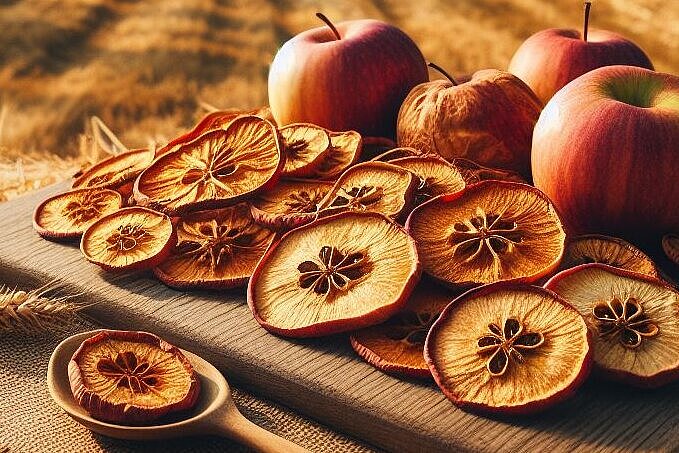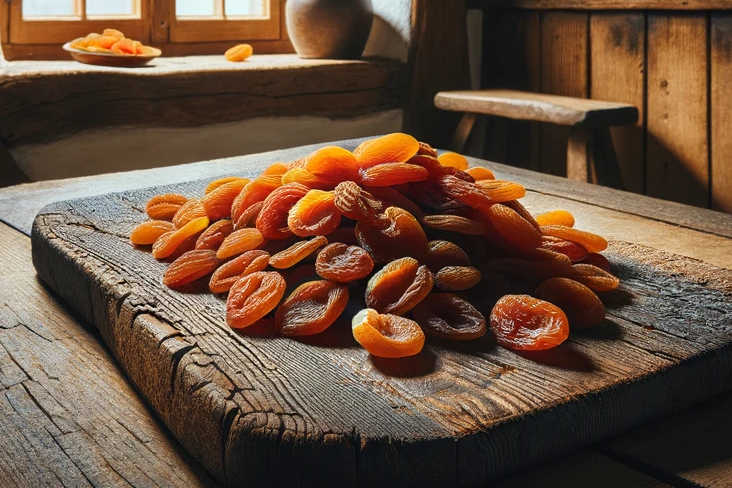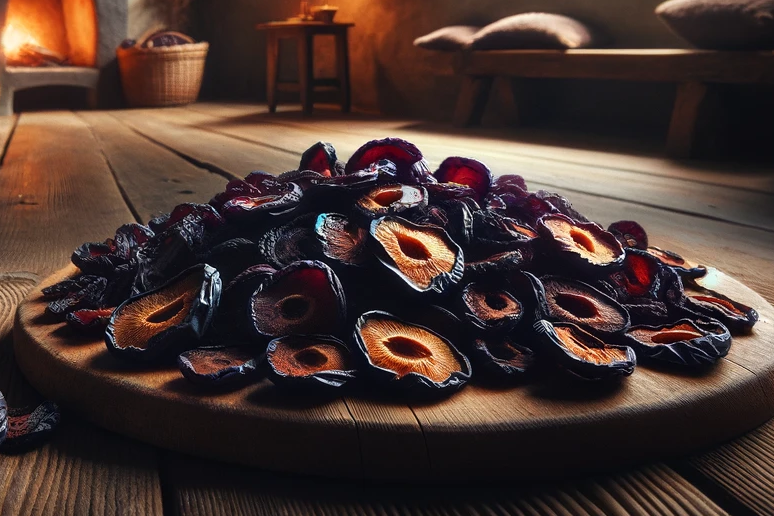Dried pears

What are dried pears?
Dried pears are the result of a dehydration process in which water is removed from fresh pears, either through natural sunlight or with the help of food dehydrators. This process preserves the fruit while concentrating its natural sugars and intensifying its flavor. The result is a long-lasting, sweet snack that contains many of the pear's original nutrients in concentrated form.
Benefits of dried pears for dogs
Nutritious snack option
Dried pears retain many of the vitamins and minerals of their fresh counterparts, including vitamin C, vitamin K and potassium. These nutrients support a variety of bodily functions, from boosting the immune system to supporting heart health.
Natural sweetness
For dogs who have a sweet tooth, dried pears offer a healthier alternative to many commercial treats that can be loaded with sugar or artificial sweeteners. The natural sweetness can also help reduce cravings for less healthy snacks.
Aid digestion
The high fiber content in dried pears can aid digestion and support healthy bowel function. Fiber helps to promote regular bowel movements and can prevent digestive problems such as diarrhea and constipation.
Possible risks and disadvantages
High sugar content
As with all dried fruits, the sugar content in dried pears is higher than in their fresh counterparts. Excessive consumption can lead to weight gain and increase the risk of dental problems and diabetes.
High in calories
Despite their nutrients, dried pears are high in calories. Excessive feeding can quickly lead to excessive calorie intake, especially if they are given in addition to your dog's regular diet.
Potential danger from additives
Some commercially produced dried pears may contain added sweeteners, preservatives or even chocolate coatings that can be harmful to dogs. It is crucial to choose products that are free from such additives.
Recommendations for dog owners
If you decide to give your dog dried pears, this should be done in moderation. Start with small amounts and observe how your dog reacts. It's important to choose natural, unsweetened dried pears with no added ingredients or preservatives. As with any supplement to your dog's diet, it is advisable to speak to a vet first.
Dried pears can be a healthy and tasty addition to your dog's diet when used responsibly and in moderation. They provide a range of nutrients and can make a welcome change to your four-legged friend's diet. However, due to their high sugar and calorie content, it is important to only feed these treats occasionally and always pay attention to the quality and composition of the products. With the right balance, dried pears can be a safe and welcome addition that strengthens the bond between you and your dog through shared moments of pleasure.
If you notice any signs of hypersensitivity or poisoning in your dog, you should see your vet immediately. We are not a substitute for a vet, but we try to be as accurate as possible. Every dog reacts differently and we recommend you get a second opinion or consult your vet if in doubt.
Stay healthy and take good care of your four-legged friend!😊
Similar to Dried pears
Dried apples are nothing more than fresh apples that have been deprived of their water content through heat or dehydration. This makes them more durable, crispier and sweeter. Dried apples can be...
Dried apricots are the result of the drying process of fresh apricots. This process significantly reduces the water content of the fruit, giving it a longer shelf life while concentrating its...
Dried plums, also known as prunes, are the result of the drying process of fresh plums. This process reduces the water content of the fruit, concentrating its natural sugars and nutrients. The...
Dried blueberries are the result of a careful drying process that removes water from fresh blueberries to extend their shelf life while preserving their nutrients and flavors. This process not only...



